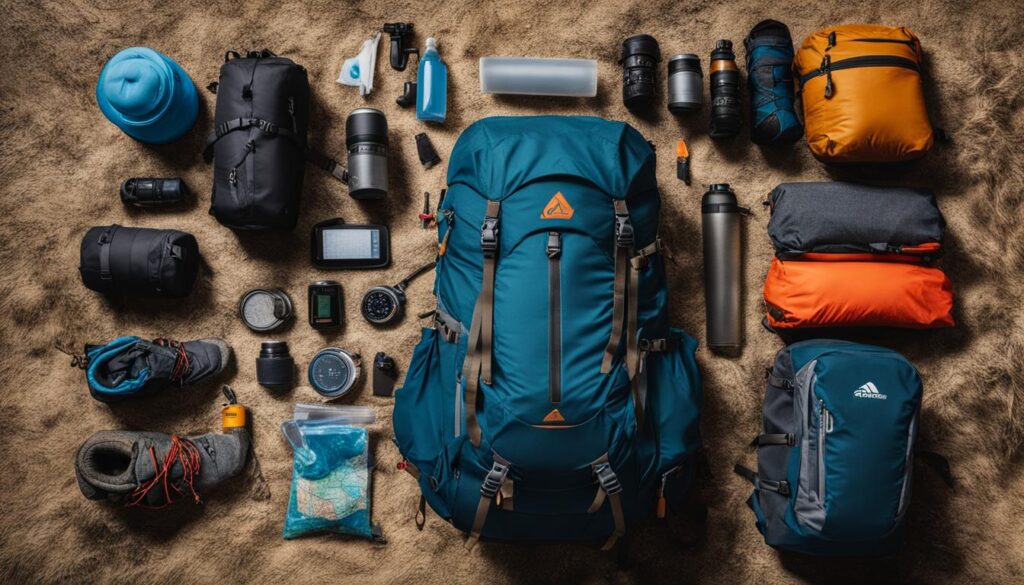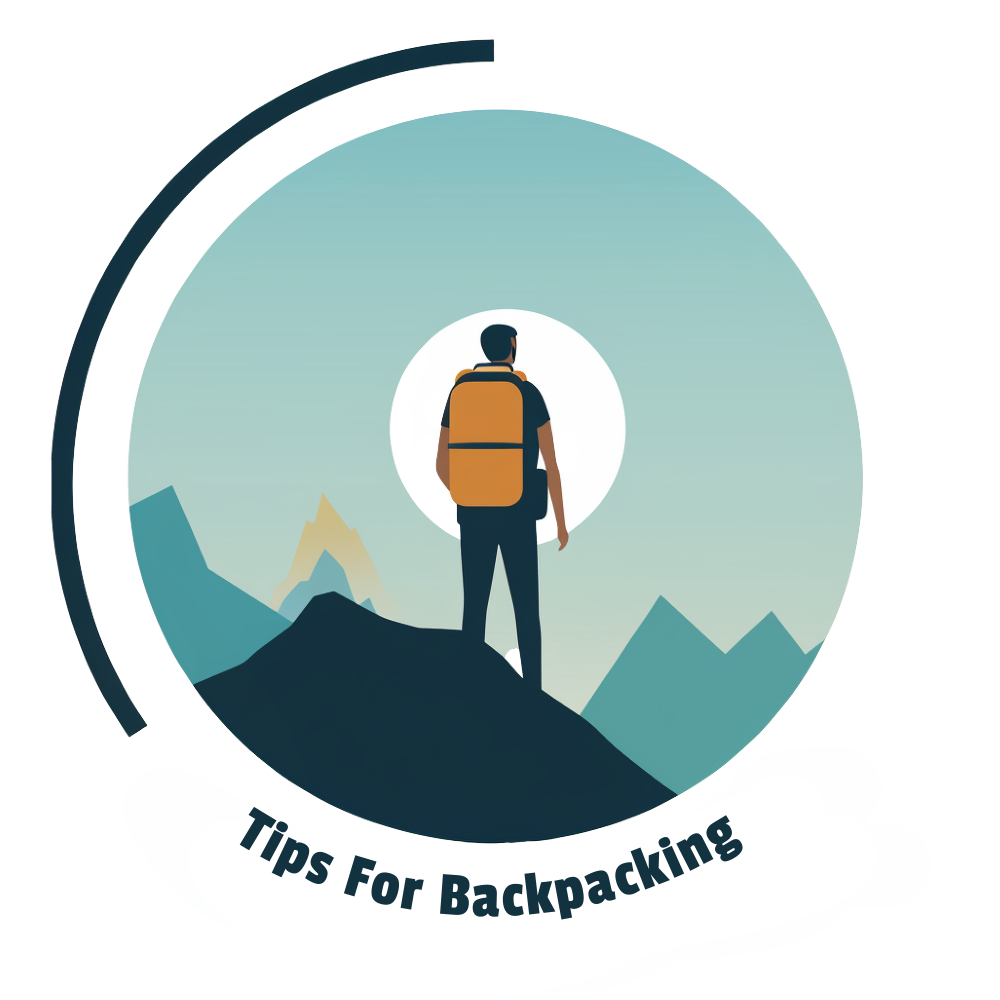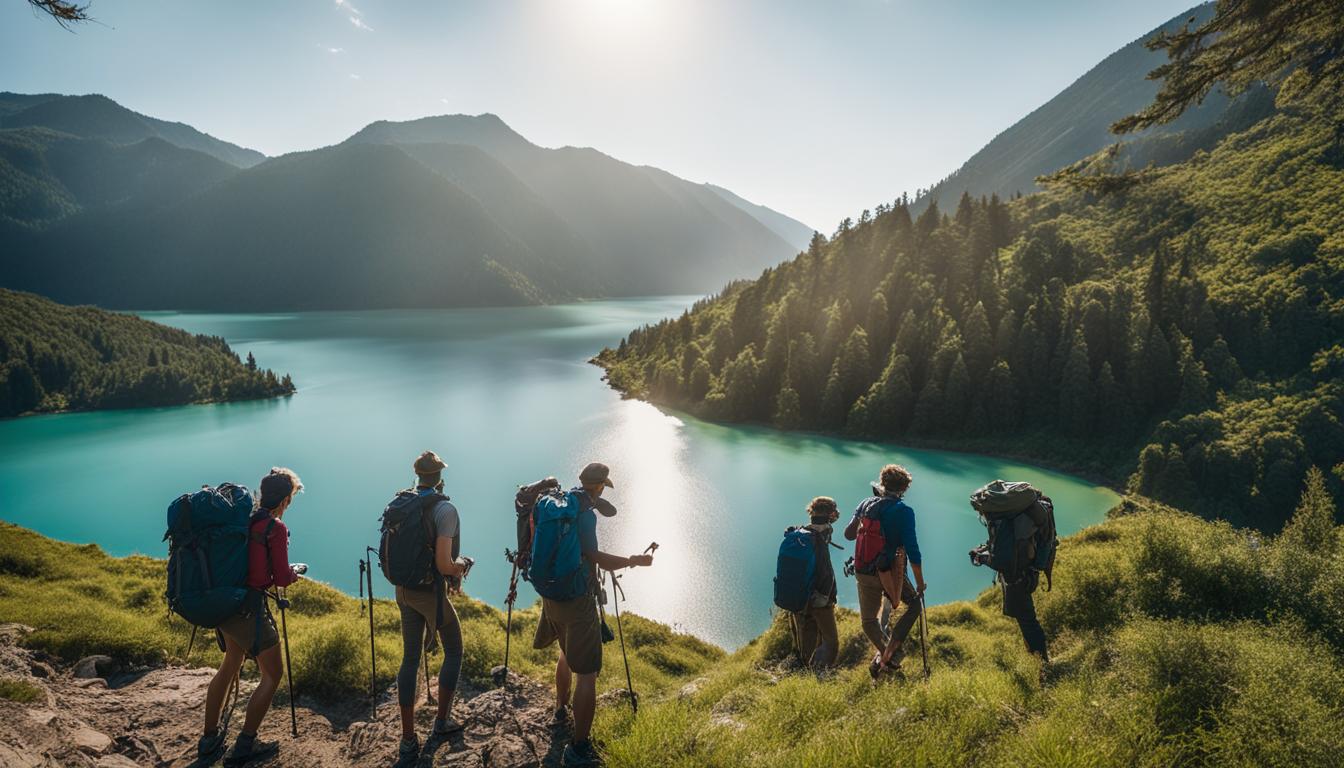Embark on your first adventure confidently with my guide on the Basics of Backpacking for First-Timers. Learn from the common backpacking blunders and tips shared by experienced backpackers to avoid rookie mistakes. Discover the essentials of backpacking gear and how to pack smartly to reduce weight. Get insights on choosing the right backpack, essential navigation skills, and protecting your food stash. This comprehensive guide will help you prepare for your first backpacking trip and ensure a successful and enjoyable experience.
Key Takeaways:
- Learn from experienced backpackers to avoid common rookie mistakes.
- Pack smartly to reduce weight and prioritize essential gear.
- Choose the right backpack for a comfortable and efficient trip.
- Develop essential navigation skills to stay on track throughout your journey.
- Protect your food stash from critters and ensure a safe camping experience.
Avoiding Common Mistakes: Packing and Weight Management

When it comes to backpacking, one of the biggest mistakes that first-timers make is overpacking. It’s essential to choose the right gear and prioritize the essentials to ensure a comfortable and lightweight backpacking experience.
Here are some backpacking tips to help you avoid carrying unnecessary weight on your trip:
- Choose a lightweight backpack: Look for a backpack that is designed specifically for backpacking and has a proper suspension system to distribute the weight evenly.
- Make a backpacking checklist: Create a checklist of the essential items you’ll need for your trip, such as a tent, sleeping bag, cooking equipment, and clothing.
- Pack smartly: Minimize weight by selecting lightweight versions of gear and only packing the necessary items. Consider multipurpose items that can serve multiple functions.
- Food selection and meal planning: Opt for lightweight and nutritionally dense food options. Plan your meals ahead of time and portion them into lightweight containers or bags.
- Share the load: If you’re backpacking with a partner or a group, consider sharing some of the gear and distribute the weight evenly among everyone.
- Invest in down gear: Down sleeping bags and jackets are lightweight and provide excellent insulation. They are a worthwhile investment for reducing pack weight without compromising warmth.
By following these backpacking tips and being mindful of the weight you carry, you can ensure a more enjoyable and comfortable backpacking experience.
| Item | Weight (lbs) | Importance |
|---|---|---|
| Tent | 3 | Essential |
| Sleeping Bag | 2 | Essential |
| Sleeping Pad | 1 | Essential |
| Cooking Stove | 0.5 | Essential |
| Water Filter | 0.5 | Essential |
| Food | 1.5 | Essential |
| Extra Clothing | 1 | Important |
| First Aid Kit | 0.5 | Important |
| Hiking Boots | 2 | Important |
| Camera | 0.5 | Optional |
Table: Essential Backpacking Gear Weight and Importance
Planning and Navigation Skills
Proper planning and navigation are essential for a successful backpacking trip. When it comes to planning, it’s important to choose a trail that suits your experience level and preferences. Consider factors like distance and elevation gain when planning your daily mileage to ensure a manageable pace. This will help you avoid exhaustion and enjoy your hike to the fullest.
Reading topographical maps and navigating with a GPS are basic backpacking skills that every hiker should possess. Understanding how to interpret contours, recognize landmarks, and use coordinates will keep you on track and prevent you from getting lost. Additionally, knowing how to find suitable campsites is crucial for a comfortable night’s sleep. Look for flat areas away from potential hazards like dead trees or rocky terrain.
When venturing into the backcountry, it’s important to protect your food stash from critters. Using odor-proof bags or bear cans will prevent bears, rodents, and other animals from being attracted to your campsite. Remember, maintaining a safe distance from wildlife is essential for their well-being as well as your own.
Hiking for Beginners: Tips and Tricks
If you’re new to hiking, there are a few tips and tricks that can make your backpacking experience more enjoyable. Start with shorter hikes to build up your endurance and gradually increase the distance as you become more comfortable. Investing in a good pair of hiking boots and breaking them in before your trip will help prevent blisters and foot pain.
- Choose lightweight and moisture-wicking clothing to stay dry and comfortable on the trail.
- Always carry a map, compass, or GPS device to navigate effectively, even if you’re hiking on well-marked trails.
- Stay hydrated by carrying an adequate supply of water and drinking regularly throughout your hike.
- Pack nutritious snacks to keep your energy levels up, such as trail mix, energy bars, and dried fruits.
- Take frequent breaks to rest, stretch, and appreciate the beautiful scenery around you.
Remember, hiking is not a race. Take your time, enjoy the journey, and listen to your body. Happy trails!
| Essential Planning and Navigation Tips | Backcountry Camping Tips |
|---|---|
| Choose a trail suitable for your experience level | Find suitable campsites away from potential hazards |
| Consider distance and elevation gain when planning daily mileage | Protect your food stash from critters with odor-proof bags or bear cans |
| Learn how to read topographical maps and use a GPS | Always maintain a safe distance from wildlife |
Conclusion
So there you have it, your beginner backpacking guide to help you get started on your outdoor adventure! Remember, having the essential backpacking gear and a well-planned backpacking checklist are key to a successful trip. Whether you’re embarking on a short weekend hike or a longer multi-day trek, these tips will come in handy.
By following the advice shared in this guide, you’ll be able to avoid common mistakes, pack smartly, and develop essential navigation skills. Remember to prioritize safety and always be prepared with the right gear and knowledge. Being well-equipped and well-informed will give you the confidence to fully enjoy your backpacking experience.
Now that you have all the necessary tools, it’s time to hit the trails and create unforgettable memories in the great outdoors. So lace up your hiking boots, strap on your backpack, and get ready to embark on an incredible adventure. Happy backpacking!

